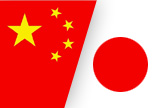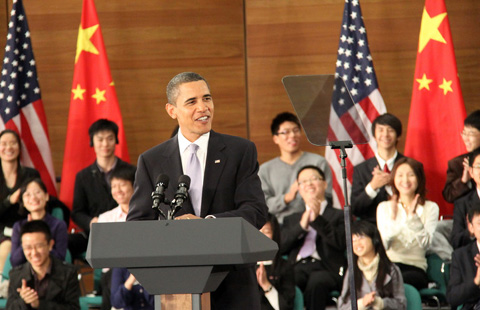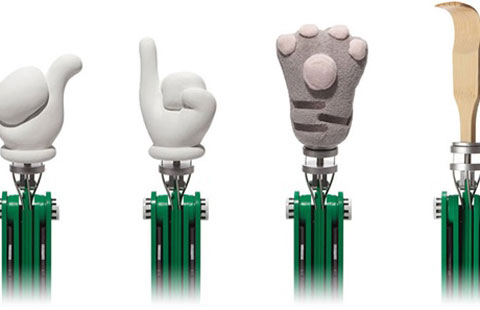Japan becomes liability of US in Asia-Pacific
(Xinhua) Updated: 2014-04-23 20:24Territorial disputes are another destabilizing factor in the Asia-Pacific as well as a sensitive topic during Obama's Asia trip. Japan is engaged in territorial squabbles with three of its neighbors, namely, China, Russia and South Korea.
The Japanese government has been hoping for a clear statement from Washington concerning its territorial disputes, especially with China.
| China-Japan relations |
In an apparent bid to pacify Japan, Obama said Wednesday that the mutual security treaty between the United States and Japan applies to the isles at the center of the China-Japan dispute.
But Washington has been also mindful not to be hijacked by Japanese rightists, who are desperate to drag the United States into any potential conflicts with China.
Few believe Washington can afford to defend a US-Japan alliance at the expense of its ties with China.
Relations between the United States and China has become the most important factor in world politics in the 21st century, according to Stephen Harner, a scholar and former US State Department official.
"Realism, and pursuit of American national interests dictates that the aim of US policy should be to take maximum advantage of China's rise, and adjust other relationships as necessary to this objective," he wrote in an article carried by the Forbes website on April 10.
For the United States, and also for China, the task of upholding peace and stability in the Asia-Pacific is paramount. If Japanese politicians try to antigonize China and at the same time force Obama to take a side in the row, they may well lose their bets.
Meanwhile, Tokyo's territorial dispute with Seoul, another close Asian ally of America, also puts Washington in a predicament.
In a fence-mending attempt, Obama brought Abe and South Korean President Park Geun-hye together for a face-to-face meeting, the first of its kind since both Asian leaders assumed office, on the sidelines of a nuclear security summit in The Hague in March.
It seemed that the effort to boost rapprochement between Tokyo and Seoul have been undone largely by Japan's subsequent actions, including the shrine visits.
Prior to Obama's visit, the White House said on Friday that the president's trip, is an "important opportunity" to underscore continued US focus on Asia, which it called the world's largest emerging region.
If Obama wants to seize upon the opportunity, he may have to tread very carefully in his first stop.
While playing up the usual hype ahout the US-Japan alliance, the US president should also send out a serious message to the Japanese rightists that the world's sole superpower will not be duped into pulling the chestnuts out of the fire for other countries.
For Japanese politicians, they have a long way to go to get rid of increasing suspicions that Japan has become a strategic laibility for its big brother.











